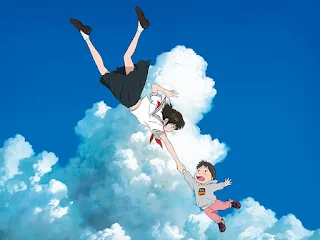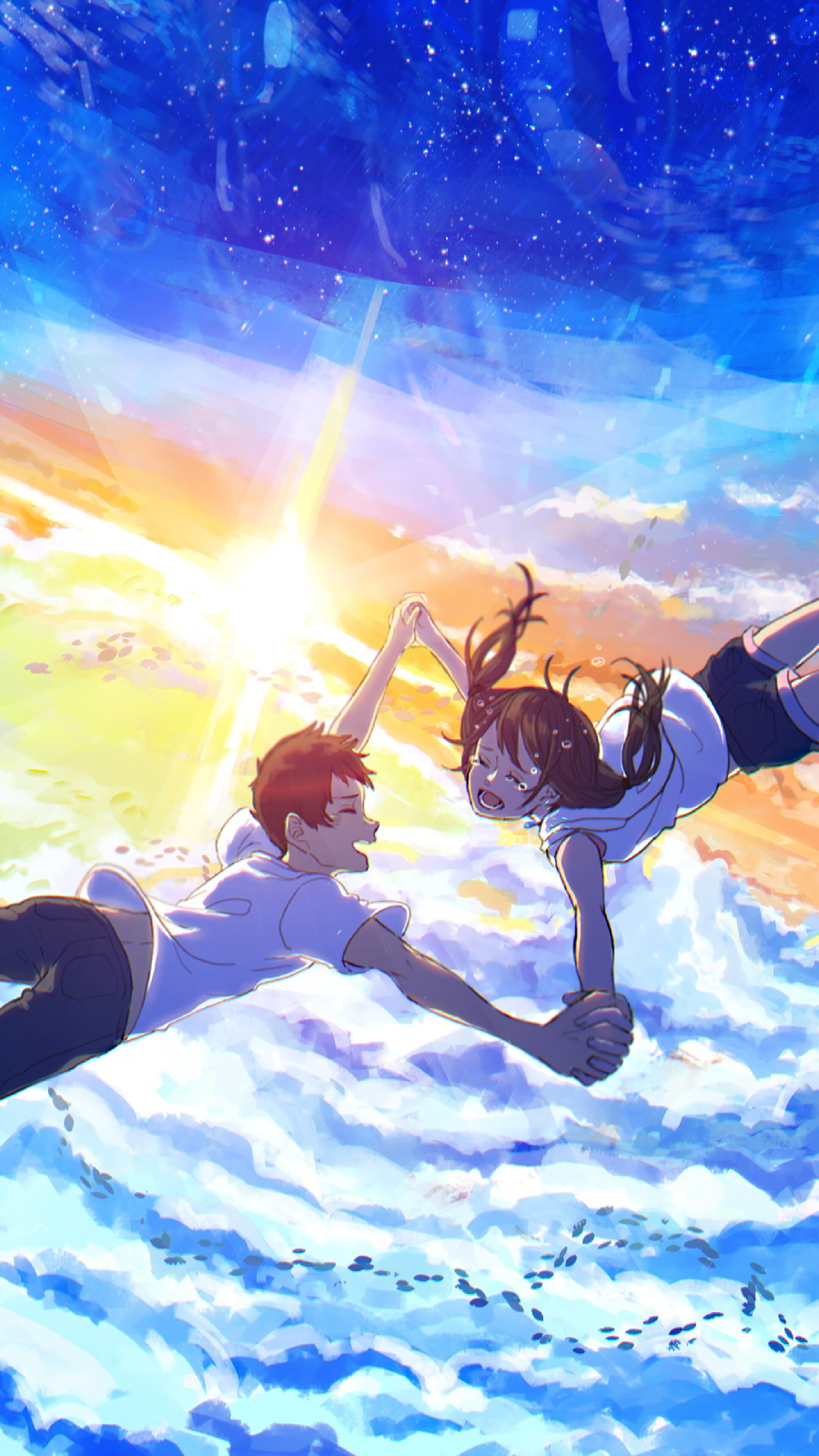Mirai
Have you ever walked into a film with absolutely no idea what it was going to be about? No TV ads, no trailers, no opinion peaches, a complete blind experience. For me, it has only truly happened once with The Forbidden Kingdom. Well, today I have another entry for that list with Mirai. Not only did I have no idea what it was going to be about, I had no idea it was about to hit me in the feels in a very complex way.
So to set the scene, we open on Kun (Moka Kamishiraishi) a young toddler playing with his Bullet Train models, as his grandmother (Yoshiko Miyazaki) ties to clean up behind him. He’s waiting for a big change as his Mother (Kumiko Aso) and Father (Gen Hoshino) are about bring home the new addition to their family Mirai (Haru Kuroki). While there was a sense that his world was about to change, Kun had no idea about what life would be like when you are not the centre of attention. One day in a fit of frustration he throws his train at his new sister and in a tantrum runs outside, only to find that the world is shifted and he might not be in Kansas any more.
Now from first glance, a film about a young child coming to terms with a new life is not something that seems all that interesting, and indeed if you had told me that synopsis I probably would have passed in seeing it. However, this is a film that has a heart to it, one that is constantly being explored, and it gives focus to everything that happens. Every person in the world can probably sympathise with their world being shifted at the core, where one day everything changes. For many people, it could be the very situation in this film where a new sibling arrives on the scene. I have a younger sibling at roughly the same age, and as I walked away from the film I had to wonder, how did I respond to such a dramatic shift in my life, because I can honestly not remember it at all.
Where the story shines is that while Kun is the focus, it is more the exploration that every member of the family is going through in the changing world of the house. The Mother is going back to work much quicker the second time around and has to work through the demands of work and motherhood, a really important issue in Japan at the moment. The Father is working freelance out of the house so he has to step up and do the housework and look after the baby and realise that maybe he got it too easy the first time around. As Kun escapes into the fantasy worlds (maybe fantasy, like I am 85% sure they are fantasy, okay how did those dolls …) you can see that each step is a journey of self-realisation about himself and the new world he lives in and has to step up as he is now a big brother.
From a technical perspective, the animation is really stunning which we see from the opening moments as we open in on a city landscape and then slowly pan down towards the house that the family calls their home. They actually repeat that same pan in close succession which seems a bit indulgent until it becomes important in the latter half of the film. The movement is fluid, which is important because this is a very active film at times, and it never draws you out of the narrative by falling into the uncanny valley. This is accentuated when we dive into the magical worlds that Kun creates that explore different parts of the world that he knows. Indeed, while they are all fantasy worlds, they are all still based in the real world because you see hints of them in books, stories, photos, earlier in the film.
One thing I was not expecting was that I was going to have an emotional reaction to a character that spends most of the film in different states of throwing a temper tantrum. Part of this is because we don’t just explore his life but everything that led to where he is today, and we go to some really emotional places. It is the tone of the film that can at sometimes whiplash from slapstick comedic moments to deep heartfelt realisations. However, at no time does the film lose its heart and drive. There was a point where I thought that this was the best point for the film to end, only to get frustrated when it looked like it was going to drag it out by going through the motions again, only to find that the film was building to a beautiful crescendo that I hadn’t seen coming, and oh you can bet there were tears.
In the end, do I recommend Maria? Yes, yes I do. It is beautifully animated, beautifully presented, and is telling a truly heartfelt story. It is also a story that we don’t see get presented on screen that often, which is odd because it is one we can all relate too.








Comments